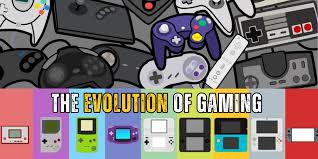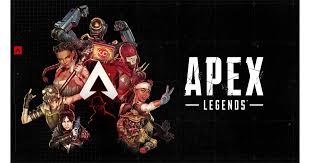The Evolution, Impact, and Future of Online Gaming Platforms
Introduction
In the digital age, online gaming platforms have transcended their roots as niche entertainment hubs to become global cultural phenomena. These platforms—ranging from PC-based marketplaces like Steam to mobile app stores and cloud gaming services—have revolutionized how millions interact, compete, and socialize. With the global gaming market valued at over $200 billion in 2023, online gaming is no longer just a pastime but a cornerstone of modern digital life. This article explores the evolution, technological foundations, societal impact, and future trends of online gaming platforms, offering a comprehensive look at their transformative role in entertainment and beyond.

The Evolution of Online Gaming Platforms
From Humble Beginnings to Global Dominance
The journey of online gaming began in the 1970s with text-based Multi-User Dungeons (MUDs), which allowed players to collaborate in rudimentary virtual worlds. The 1990s saw the rise of LAN parties and dial-up multiplayer games like Doom and Quake, laying the groundwork for connected gameplay. The late 1990s and early 2000s marked a turning point with the advent of MMORPGs (Massively Multiplayer Online Role-Playing Games) such as EverQuest and World of Warcraft, which introduced persistent worlds and subscription models.
The launch of Xbox Live in 2002 revolutionized console gaming by integrating voice chat and matchmaking, while Valve’s Steam (2003) pioneered digital distribution, replacing physical discs with instant downloads. Mobile gaming exploded with smartphones, as platforms like the App Store and Google Play brought casual games like Angry Birds to billions. Today, platforms like Epic Games Store and PlayStation Network host millions of concurrent users, reflecting the industry’s meteoric growth.

Technological Advancements Driving Growth
The Infrastructure of Immersion
- High-Speed Internet and 5G: Broadband eliminated lag, enabling real-time multiplayer experiences. 5G promises sub-millisecond latency, crucial for competitive gaming and mobile cloud services.
- Cloud Gaming: Services like NVIDIA GeForce NOW and Xbox Cloud Gaming stream AAA titles to devices, democratizing access to high-end gaming.
- Cross-Platform Play: Titles like Fortnite and Rocket League allow seamless play across PC, console, and mobile, breaking down hardware barriers.
- VR/AR Integration: Oculus Rift and Pokémon GO have blended virtual and physical worlds, offering immersive experiences.
Types of Online Gaming Platforms
Diverse Ecosystems for Every Gamer
- PC Platforms: Steam, Epic Games Store, and GOG.com dominate with vast libraries, mod support, and seasonal sales.
- Console Networks: PlayStation Network, Xbox Live, and Nintendo Switch Online offer exclusive titles and subscription perks like free monthly games.
- Mobile Stores: The App Store and Google Play cater to casual gamers with free-to-play hits like Candy Crush and Genshin Impact.
- Browser-Based Platforms: Platforms like CrazyGames provide instant access without downloads, ideal for lightweight play.
- Hybrid Models: Roblox and Minecraft empower users to create and monetize their own games, fostering vibrant communities.

Impact on Society and Culture
Beyond Entertainment: Building Communities
Online gaming has reshaped social dynamics:
- Global Connections: Games like Among Us and Animal Crossing became social lifelines during the COVID-19 pandemic.
- Esports Explosion: Platforms like Twitch and YouTube Gaming turned titles like League of Legends into spectator sports, with tournaments offering million-dollar prizes.
- Cultural Influence: Gaming slang (“GG,” “noob”) permeates mainstream culture, while in-game events (e.g., Fortnite concerts) redefine live entertainment.
- Mental Health Considerations: While gaming fosters camaraderie, concerns about addiction and cyberbullying persist, prompting platforms to implement parental controls and playtime trackers.
Monetization Strategies
Turning Play into Profit
- Freemium Models: Free base games with microtransactions (e.g., Fortnite skins) drive $92 billion in mobile revenue annually.
- Subscriptions: Xbox Game Pass and PlayStation Plus offer libraries of games for monthly fees, ensuring steady revenue.
- Ad Revenue: Casual mobile games use rewarded videos and banners, balancing monetization with user experience.
- Loot Boxes and Controversy: Randomized in-game purchases face scrutiny for resembling gambling, leading to bans in Belgium and the Netherlands.
Challenges and Controversies
Navigating the Dark Side
- Addiction: WHO’s recognition of “gaming disorder” highlights risks of excessive play, especially among youth.
- Privacy and Security: Data breaches and hacking incidents (e.g., 2021 Twitch leak) underscore the need for robust cybersecurity.
- Toxicity: Harassment and discrimination in voice/text chats challenge platforms to enforce stricter moderation.
- Regulatory Pressures: Governments are scrutinizing loot boxes, labor practices in “play-to-earn” games, and antitrust issues (e.g., Apple vs. Epic).
The Future of Online Gaming Platforms
Innovation on the Horizon
- Metaverse Integration: Platforms like Meta’s Horizon Worlds aim to merge gaming, socializing, and commerce in persistent 3D spaces.
- AI-Driven Personalization: Procedural content generation and adaptive NPCs could create infinitely unique experiences.
- Blockchain and NFTs: Play-to-earn games like Axie Infinity tokenize ownership, though sustainability concerns linger.
- Sustainability Initiatives: Microsoft’s Xbox Carbon Aware Update and Sony’s low-power suspend modes address environmental impacts.
Conclusion
Online gaming platforms have evolved into dynamic ecosystems that blend technology, creativity, and community. As they navigate challenges like addiction and regulation, their potential for innovation remains boundless. From the metaverse to AI-driven worlds, these platforms will continue to shape not just entertainment, but how we connect, compete, and create in an increasingly digital world. The future of gaming is not just about play—it’s about redefining human interaction itself.


